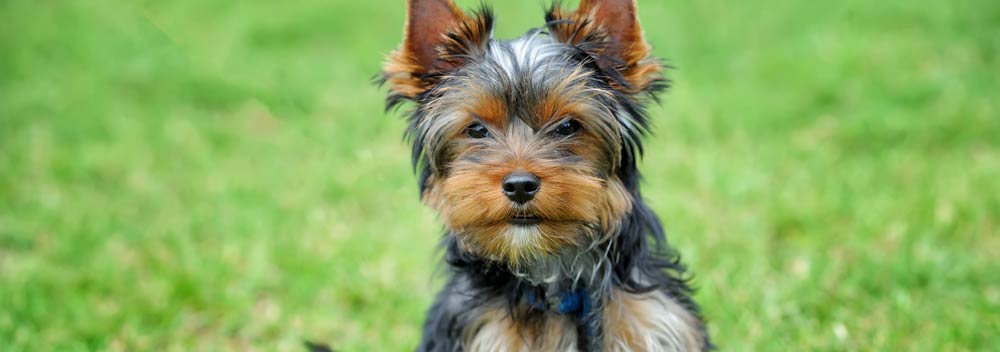We have no puppies of this breed for sale at the moment!
Breed Info

Yorkshire Terrier Breed Info
Show Quality Versus Pet Quality
The AKC Standard is the description of what breeders who compete in AKC conformation dog shows strive to obtain in their breeding programs. The standard of perfection does not include varieties for size or color. The YTCA would encourage you as a new owner to spay or neuter your puppy if it does not conform with the standard based on size or color.
If you obtained your puppy as a show puppy, the breeder may mentor you in preparing your puppy for the show ring. You can find information about shows in your area and assistance on entering on the AKC website. All dogs are eligible to compete in AKC Companion events, which include Obedience, Agility, Rally and Tracking. All dogs require some basic training which you may obtain from attending a basic training class. Yorkshire Terriers have a wonderful temperament and are great companions. You may also be interested in training your dog to participate as a therapy dog. These dogs may visit hospitals, nursing homes or schools.
Grooming
We’ll help you learn the grooming basics which include brushing, weekly bathing and nail trims plus keeping the ears clean and the teeth tarter free. A bathing routine for your puppy or adult is outlined for you on our website www.YTCA.org. Maintaining a long coat requires daily work. To avoid eye irritation always keep the head hair either tied up in a top knot or trimmed short. The long body coat should be clean and free of debris, urine or feces. You may choose instead to have a professional groomer trim the coat into an easy to care for cut. Many people have learned to trim their Yorkie at home after a few trips to a professional groomer.
Feeding
A Yorkie puppy needs a good quality diet for its energy needs. Initially a young puppy should be fed 3-4 times per day. Yorkie puppies may be prone to hypoglycemia (low blood sugar) especially between 6-12 weeks of age which is why the Yorkshire Terrier Club of America’s members do not sell puppies prior to 12 weeks old. A dab of NutriCal a few times a day for a puppy is helpful in preventing symptoms of hypoglycemia. As a Yorkie matures two feedings a day should be sufficient. Select dry foods that have more meat and less grain in the first ingredients. The addition of canned food will increase the palatability while the puppy is young.
Training for a Great Pet
Yorkies are smart and can learn fast but without training they can get into trouble! After receiving its shots, your puppy needs lots of socializing with other people and dogs. Don’t let the puppy learn to bite, chew on you or growl at humans or other dogs. While cute in a puppy keep in mind that dogs grow up and these habits are not cute in adults. A crate should be used for travel and for home. A crate will become the puppy’s den, but they must not be left for long extended periods without the opportunity to exercise, potty, get to play and have your affection. House training requires you to be patient and consistent when working with your puppy. You’ll need to master the basics (1) housetraining, (2) sit on command, (3) down on command, (4) stay when told and (5) come when called. It’s often better to start by taking classes. Look for a trainer who has worked with small dogs or whose past students have succeeded with their small dogs. With training, your Yorkshire Terrier will be a pleasure whether your lap buddy, an outstanding therapy dog, a beautiful champion or a brilliant companion event competitor. For more training and housebreaking tips please see our website: www. YTCA.org
Health and Vet Check
Soon after getting your puppy, take it to the vet for a Well-Puppy Checkup. At that time your vet will discuss vaccinations, examine a stool sample for worms and answer any questions that you may have. When you set up an appointment to have your puppy spayed or neutered be sure to ask the vet to pull any retained puppy teeth. That is also an excellent time to have your dog microchipped. If your pet does get lost, microchipping is the best way of enabling those who find it to identify the owner and return it to you. This breed is generally very healthy, but health issues including Legg Perthes, Luxating Patellas, Protein-Losing Enteropathy and Portosystemic Shunt have been known to occur. That is a major reason why, without knowing the genetic history of a dog, it should not be bred. More health information is on our website www.YTCA.org.
